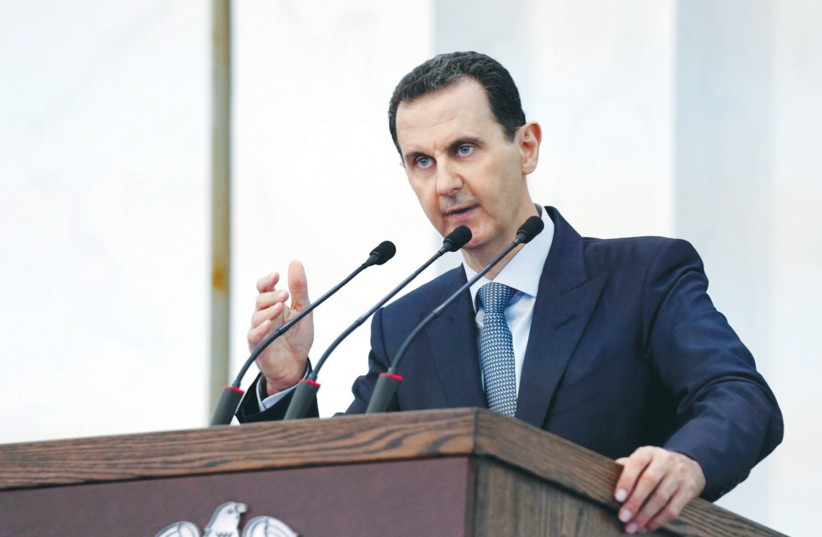Russia launched a military intervention in 2015, soon after the Russian-backed separatist war in Ukraine ground to a halt. On September 30, Russia’s parliament approved a request by President Vladimir Putin to launch airstrikes in Syria, BBC reported at the time.
“Within hours, the country’s first intervention in the Middle East in decades began,” the BBC said
During the opening stages of Russia’s intervention in Syria, Vladimir Putin said that Russia was acting “preventively, to fight and destroy militants and terrorists on the territories that they already occupy, not wait for them to come to our house.” Russia claimed to be targeting ISIS.
Russian Foreign Minister Sergei Lavrov later admitted that Russia was actually bombing whoever it defined as “terrorists.” It had taken this concept of a “war on terror” from the US war on terror launched in 2001. By Russia’s logic, it could repackage Western norms in intervention as its own.
In 2015, the US noted that Russia was actually bombing Syrian rebels opposed to the Assad regime, not ISIS. In the end it didn’t matter because Russia plowed ahead. Bombing increased. By 2016, the rebels had lost Aleppo, and Turkey was intervening in Syria as well. The US moved into eastern Syria to back Kurdish forces that became part of the SDF. By 2018, the Assad regime had retaken a swath of Syria with Russia’s help.

Russia believed that it could go into Ukraine with the same double-talk. Putin claimed Ukraine was run by a “coup government” and that therefore Russia could intervene against “Nazis” in Ukraine. Russia claimed to be defending Russian speakers who were being persecuted. This has all the hallmarks of the 1930s German claims to need to “defend” Germans in Czechoslovakia. But Putin’s model is not the 1930s, so much as it is the US wars in the 1990s in the Balkans and the war on terror as a rhetorical excuse, drawing on Russia’s experience from Syria.
Russia believes that it can do in Ukraine what it did in Syria because it basically got away with what it did in Syria without any pushback from the international community. Russia didn’t expect as much pushback as it has received at the UN and other forums. Russia believed that once again the US and the West would talk, and not act. It also believes that Western media has a short attention span. In a few months Russia will say it was successful at imposing “order” on Ukraine. It will claim victory, as it has done in Syria, and pretend its military prowess was proved.
It’s not clear if the Syria game plan will work for Russia in Ukraine. However, it is clear that Russia was empowered by the impunity of the last several years in Syria. It enjoyed impunity because it claimed a legal pretext to be fighting in Syria. It was fighting “terror” at the invitation of the Syrian regime. In Ukraine, Russia has bulldozed through any legal pretext and instead embarked on an unprovoked invasion that is illegal under international law.
The West’s reaction to Russia’s invasion has been swift and strong, and at the UN there has been condemnation by most countries of the world. This may show that Russia has miscalculated, thinking it could do as it did in Syria, while in fact its actions are being perceived internationally more like Saddam Hussein’s invasion of Kuwait in 1990.
